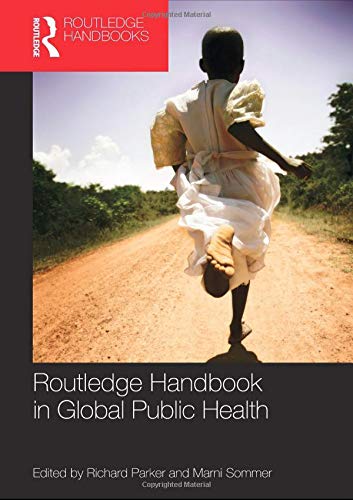By Ana Antunes
When gathering ideas for this book review section, I asked myself a very simple question – If I had to choose only one book to fulfil the Global Health section of my Faculty’s library (or my own personal shelf in a wretched alternate universe) – what would it be? The answer came straight to mind, possibly because this was the book that I reached more often whenever working on essays or simply when a new topic caught my attention: The Routledge Handbook in Global Public Health, edited by Richard Parker and Marni Sommer.
Global Health is eminently a critical and interdisciplinary field, and this book, by articulating perspectives from political and social sciences, environment, development, public health and health systems (just to name a few), created a compendium of essays that explore the most classical and emergent global health challenges.
If I have caught your attention, here’s a brief description of what you may find. The book is organized in ten major sections, which are the following:
- The transition from international heath to global health
- Structural inequalities and global public health
- Ecological transformation and environmental health in the global system
- Population and reproductive health
- Conflict, violence and emergencies in global public health
- Global public health policy and practice
- Global public health and development
- Global mental health
- Global access to essential medicines
- Health systems, health capacity, and the politics of global public health
These sections comprise by at least four essays, written by some of the most well known figures in each field. Obviously influenced by my own interests, I could not finish this review without highlighting two particular essays.
If you are interested in social determinants of health and the different dimensions that shape social and health inequities, from its economical and political spheres, the essay “Global inequities: Structures, power and the social distribution of health”, written by Sharon Friel and Michael Marmot, is for you.
The essay “Closing the treatment gap for mental disorders”, written by Vikram Patel, Mirja Koschorke and Martin Prince, for those of you interested in Global Mental Health, puts into focus the inequities in mental health and its treatment gap, especially relevant in low and middle income countries. The authors call for an urgent global effort to deal with the burden of mental illness and its inherent impairment, disability and suffering.
In conclusion, if you are trying to find your voice and perspective in Global Health, this book is a great way to start.

Image retrieved from Amazon



0 Comments